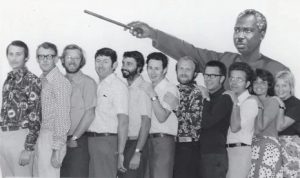
- This event has passed.
Political Science and Sociology Research Seminar: Humanitarian expressions of solidarity during the Cold War
March 31, 2022 @ 1:00 pm - 2:00 pm
Event Navigation
- « History Research Seminar Series: “Antiquaries, Archivists and the Origins of an Historical Profession in Ireland: Perspectives from the Beyond 2022 Project”
- Irish Studies Seminar Series, 2021-22: “An Uneven Score: Gender Balance Investigation for Publicly Funded Composer Opportunities on the Island of Ireland (2004-2019)” »
About this event
Humanitarian expressions of solidarity during the Cold War: a comparison of how the volatile security situation in Honduras conditioned the engagements of Oxfam and Médecins Sans Frontières with the principle of neutrality in the Salvadoran refugee camps, 1980-1982.
In the Salvadoran refugee camps in Honduras, NGOs encountered a Cold War humanitarian crisis that posed a very specific challenge to humanitarian action. What was the role of humanitarian actors when faced with a refugee population often treated as criminals by the host government? How should humanitarians have reacted when it turned out that the refugee camps at the border between El Salvador and Honduras were not in fact spaces of refuge at all, but spaces of danger, where the refugees remained targets of military harassment and violence, and where there was no guarantee that refugees would be safe from camp incursions by the Honduran or Salvadoran military, and their para-military accomplices? What is the meaning of the humanitarian principle of ‘neutrality’ in such a context?
This paper will compare the interventions of Oxfam and Médecins Sans Frontières (MSF) to examine how the particularly volatile security conditions in the Salvadoran refugee crisis determined the parameters of humanitarian action. How did both NGOs engage with the principle of neutrality differently, and in what ways were their actions either constrained or pushed to reflect a more radical stance by security considerations? How far was each NGO willing to go in adopting a more contextual understanding of ethical action that reflected the imperatives of solidarity and human rights? This paper will examine the initial phase of the humanitarian relief programme, from 1980 to 1982, in which both Oxfam and MSF established and crystallised their roles in the humanitarian programme in the face of intense controversy over allegations of collusion by World Vision with the Honduran army, and the question of relocation of camps away from the border against the refugees’ wishes. In so doing, it will focus on how the security situation itself directly affected each organisation’s decision-making process, arguing that it simultaneously had the effect of radicalising and constraining humanitarian expressions of solidarity in Honduras.
Maria Cullen is a fourth year PhD candidate in the History Department at NUI Galway, working under the supervision of Dr. Kevin O’Sullivan. Her research is supported by the Irish Research Council (Government of Ireland Postgraduate Scholarship) and the National University of Ireland (NUI Travelling Studentship). The PhD project is a comparative study of the approach to ethical humanitarian action adopted by Médecins Sans Frontières and Oxfam in the 1980s. In particular, it looks at the issues surrounding the integration of human rights discourse into humanitarian relief within the polarised political context of the Cold War.
Registration
To attend this event, please register via Eventbrite at: https://www.eventbrite.co.uk/e/humanitarian-expressions-of-solidarity-during-the-cold-war-tickets-303645540987


